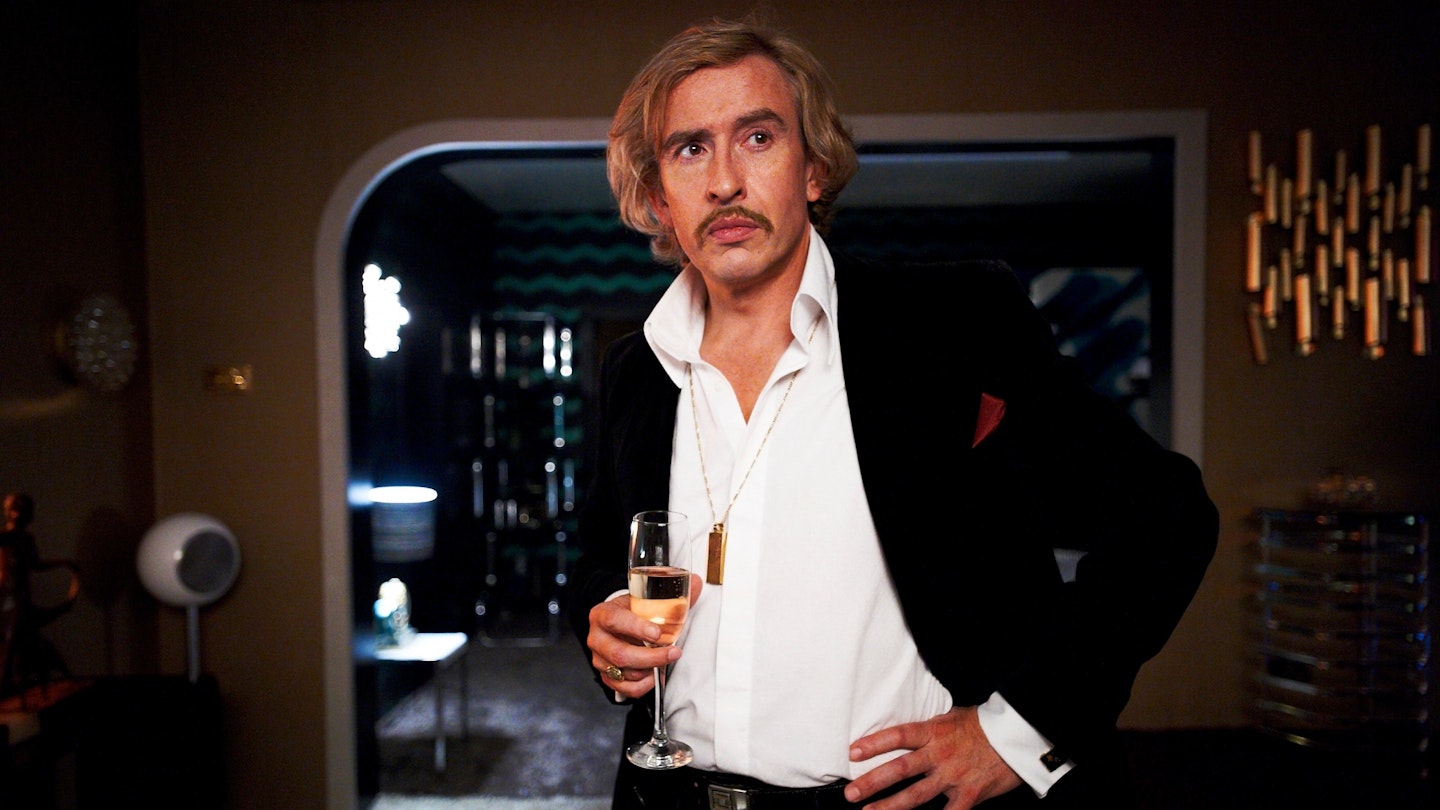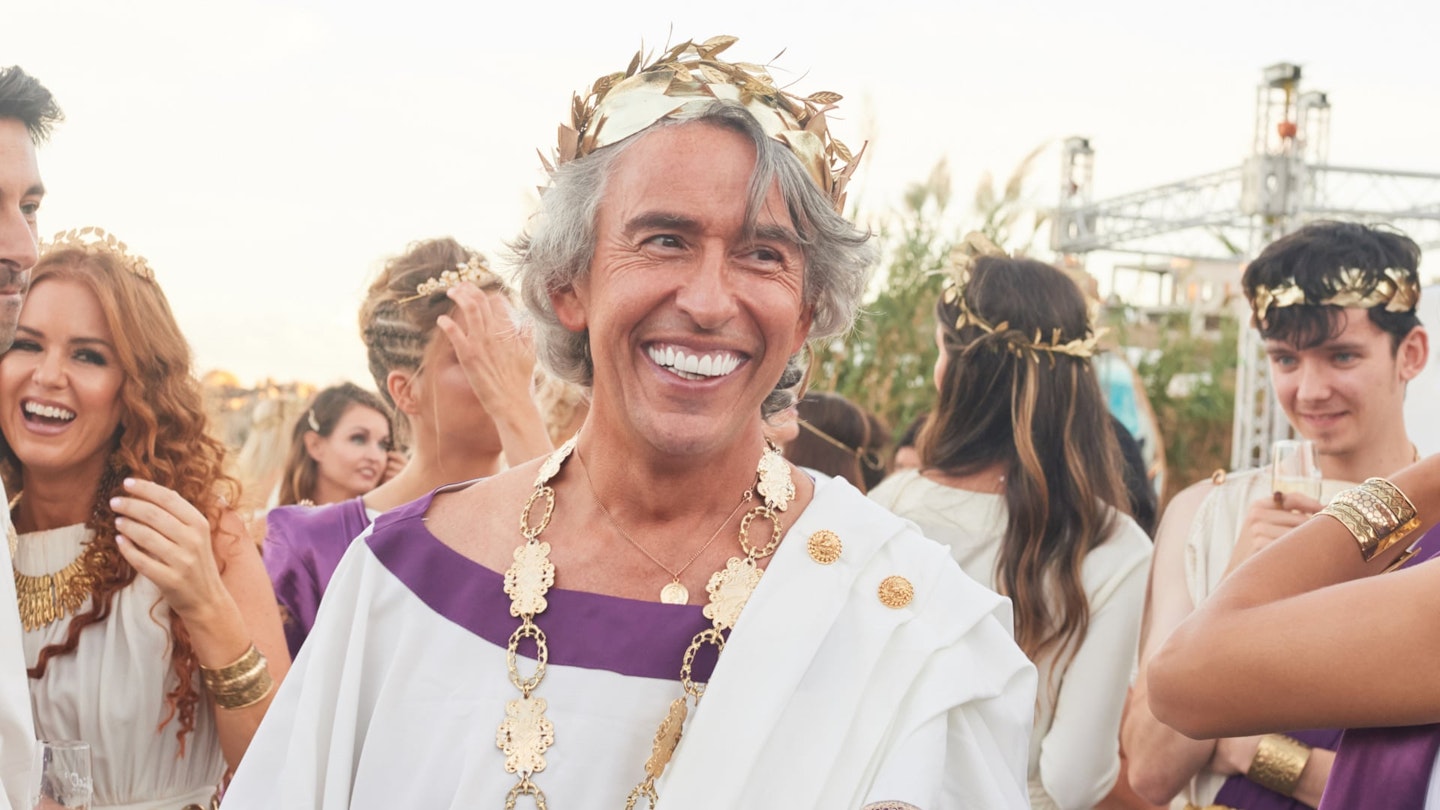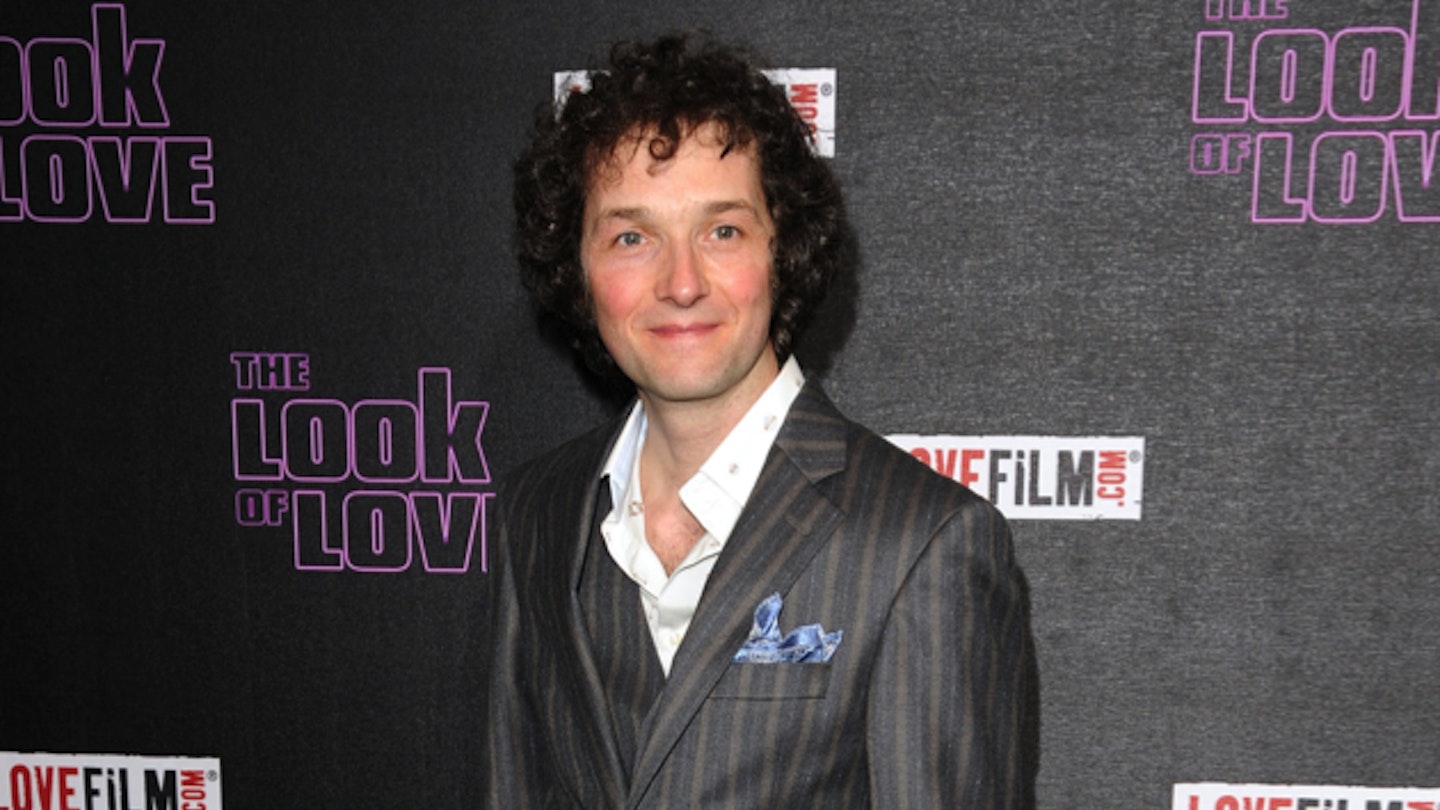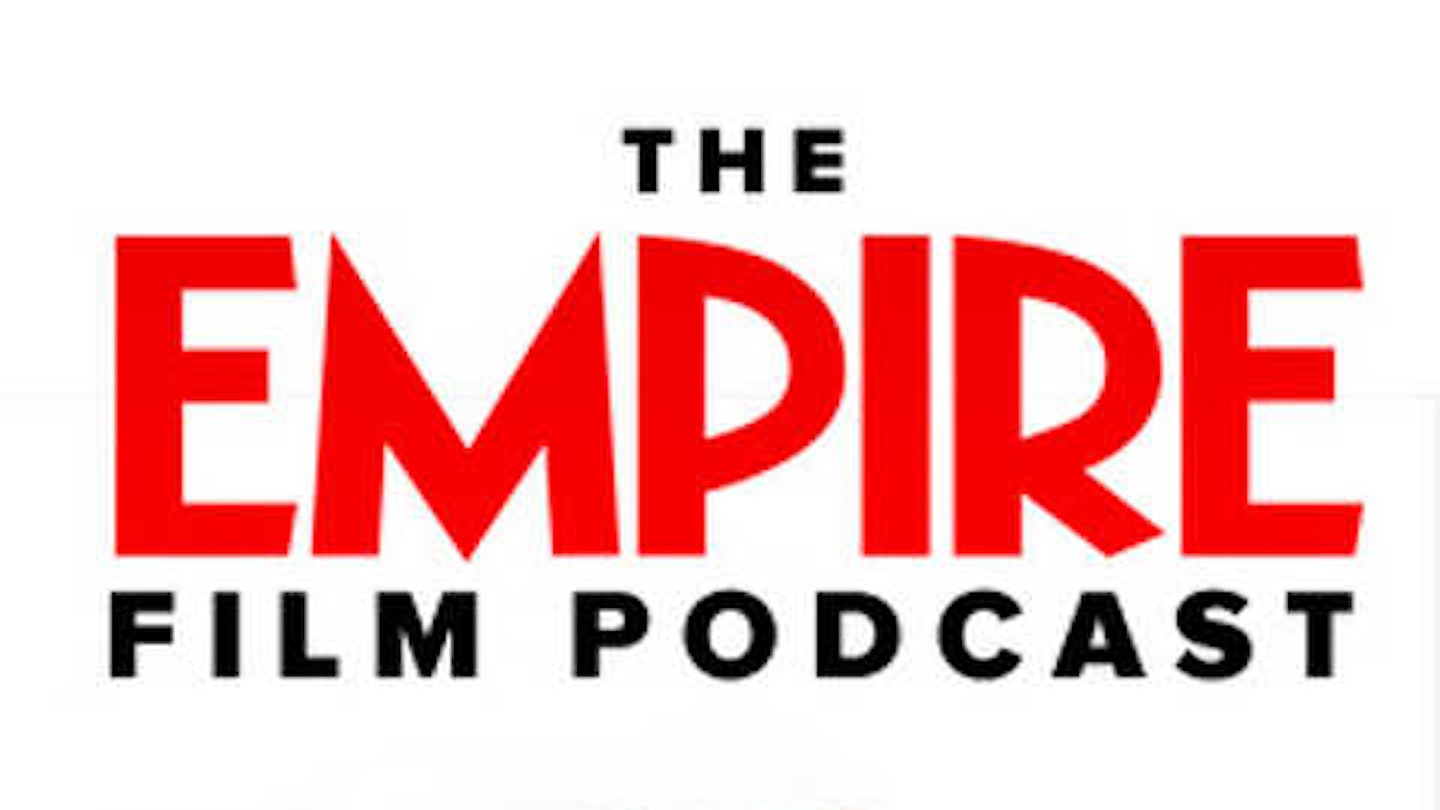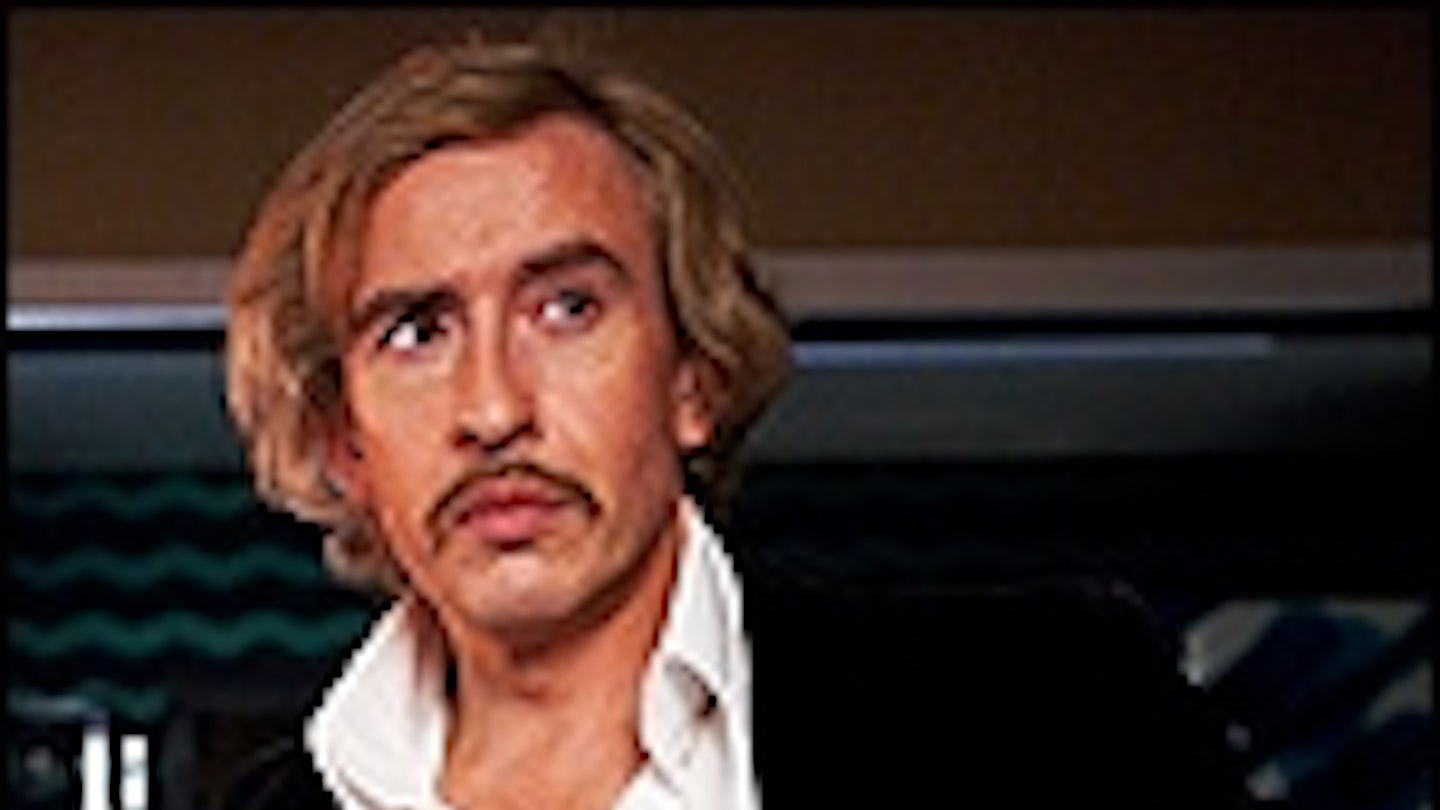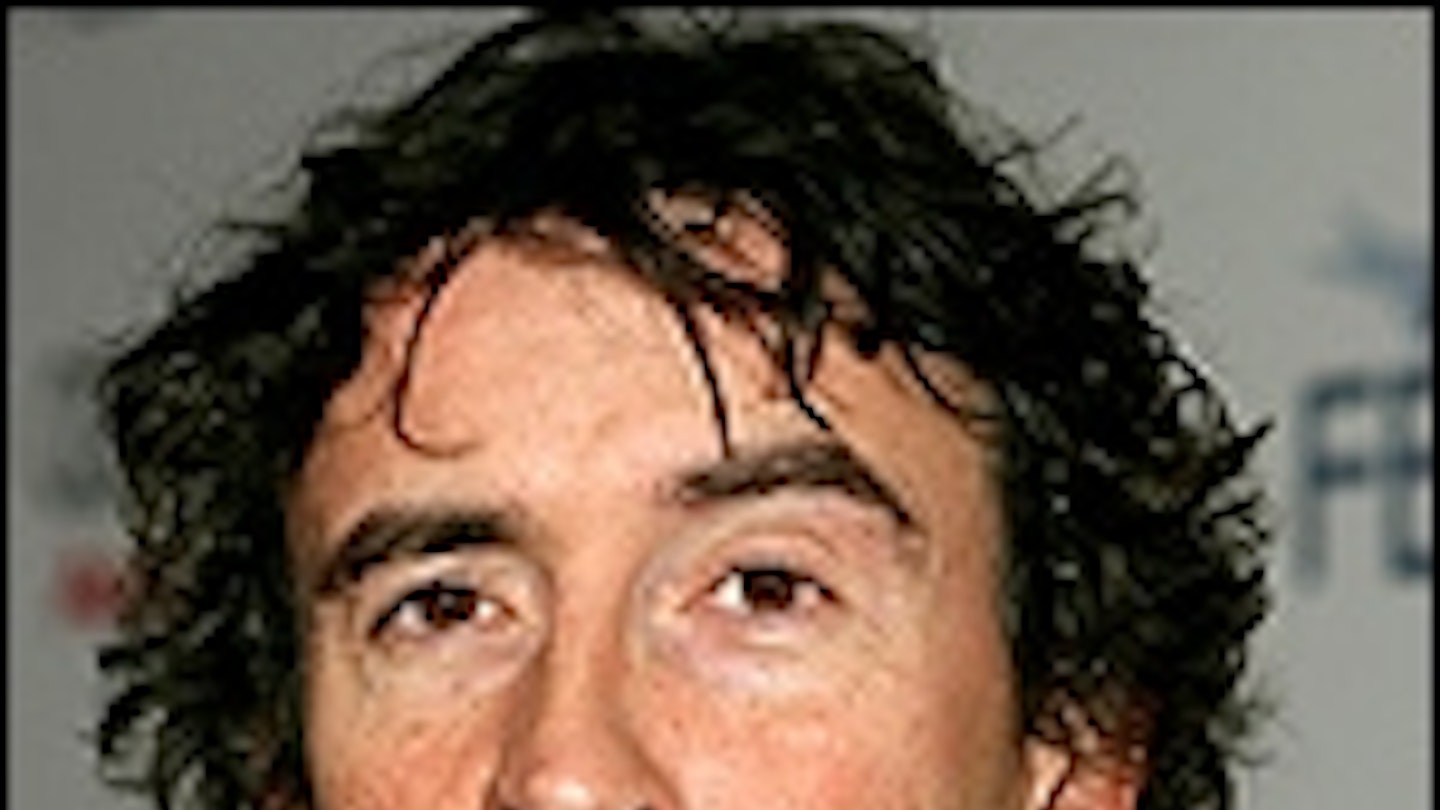Contains strong sexualised nudity, sex and hard drug use,” advises the BBFC. Given that, plus its collaborating talents — character comedian Steve Coogan and seemingly fearless director Michael Winterbottom — one might expect The Look Of Love to earn “9 Songs meets 24 Hour Party People!” as its top-line fatuous poster quote. It may yet. (Especially if some wily marketer sneaks that very line out of context.) But despite the former being a Winterbottom foray into “strong sexualised nudity” (you saw it go in and everything), and the latter being another Winterbottom subcultural biopic starring Steve Coogan as a notorious self-publiciser and unconventional entrepreneur who exhibited an excess of ‘character’ (namely Factory Records founder Tony Wilson), The Look Of Love retains its own, distinct charm.
Paul Raymond was the founder of the Raymond Revuebar in Soho, a ‘members only’ club which put on live strip shows, often with a gauchely exotic twist (there was litigation over one act involving a snake). He later staged erotic shows and sex comedies at various West End theatres, and bought up and launched various top-shelf hand-shandy mags, including Men Only, Mayfair and Razzle. Despite, or because of, being (yes) a 24-hour party person, his personal life proved disastrous: a wrecked marriage, alienated sons (one of whom was illegitimate), and his beloved daughter Debbie — to whom he intended to bequeath his empire — dying of a heroin overdose in 1992. He ended his life as a recluse.
And it is there that Winterbottom, and writer Matt Greenhalgh (Control, Nowhere Boy), choose to begin, with a shrivelled, dejected Raymond, the showman turned no-show man, replaying better times on a retro-space-age VHS player. From there, it is a largely conventional biopic (no 24 Hour Party People-style fourth-wall breaking here), speeding us through key moments in Raymond’s career, from black-and-white to colour — a straightforward rise-and-fall. In this sense, it is quite unadventurous. While sex shows and explicit nudity were Raymond’s stock-in-trade, the film doesn’t set out to shock (although you might raise an eyebrow at the way he gives his daughter a line of coke during labour), instead revelling knowingly in the gaudy tastelessness of it all. There’s always been something incredibly unerotic about British erotica: goose pimples, bad wigs, feather boas… All Razzle, no dazzle.
For this reason, abetted by the casting of Coogan and the likes of Chris Addison (as Men Only’s predictably sleazebag editor), David Walliams and James Lance, the film skirts closest to comedy. But Coogan himself is admirably restrained. If his Raymond feels familiar, it is only because we’re so used to seeing him as a certain other naffly British, un-self-aware showman with bad hair. Coogan’s Raymond is surprisingly unaggressive, someone of strong convictions and supreme self-confidence but who avoids personal confrontation. More impressive, though, is the trio of supporting performances from the women in Raymond’s life: Anna Friel as the citric-sharp Jean, who puts up with too much for too long; Tamsin Egerton as leggily stunning and intelligent model-cum-columnist Fiona Richmond, who puts up with even more for not so long; and Imogen Poots, hiding in the shadow of her own fringe as Debbie, who, the film asserts, was spoiled by her father in the truest way possible — thus finding, amid all the daft interior design and humorous erotica, the story’s tragic heart.
